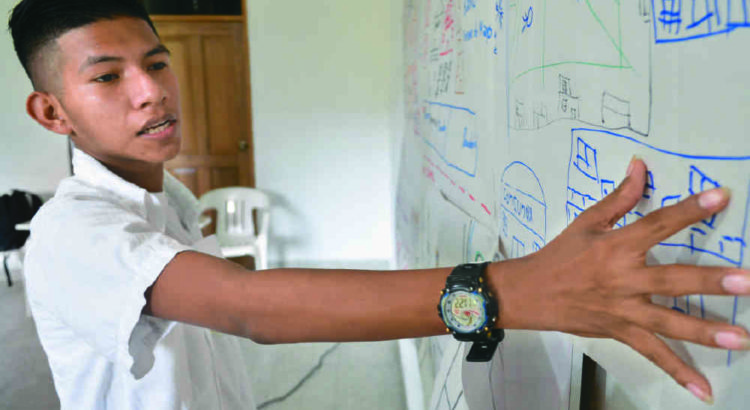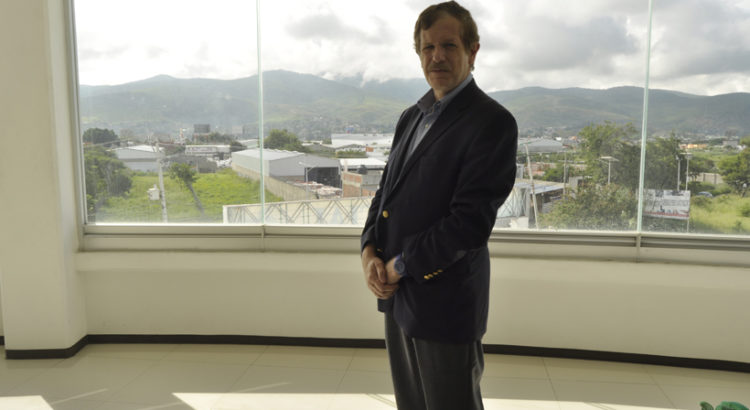Fiji/Julio de 2017/Fuente: Fiji Sun
Resumen: Hay una tendencia creciente en muchos países en desarrollo donde el público en general, incluyendo a la clase trabajadora, ha expresado su preocupación por la calidad de los graduados producidos por las universidades. Estas preocupaciones se plantean en un momento en que las tasas de matrícula ha aumentado, la proporción de personal-estudiante ha aumentado, y los empleadores y los organismos de acreditación han aludido sobre la calidad de los graduados producidos por las universidades.
There is a growing trend in many developing countries where the general public including working class people have raised concerns about the quality of graduates produced by universities.
These concerns are raised at a time when tuition fees has increased, staff-student ratio has increased, and employers and accreditation bodies have alluded about the quality of graduates produced by universities.
Need for reviews
Over many years, the Ministry of Education has developed policies and implemented reforms in school education.
No such attempt has been made to review tertiary education (including vocational) to assess the extent to which it is fit for purpose in meeting the needs of Fiji and abroad.
I have raised my concerns several times that the quality and standard of university education is declining.
I have also raised concerns about poor planning and it is becoming clear now that we have more graduates and less jobs -teacher education is a classic example.
The unemployment of graduates from some universities in Fiji who have migrated overseas also raise serious concerns about the quality, standard, and comparability of qualifications issued in Fiji.
Universities as autonomous institutions have a long history of accrediting their own courses through various academic committees.
To ensure that the courses are meeting the needs of the industry (local and international), courses need to be reviewed in a cyclical manner.
More needed in annual reviews
Annual reviews should be done to assess course quality, viability and relevance with the use of trend and benchmarked data.
Similarly, five yearly comprehensive reviews needs to be done to assess the quality of the courses.
The review includes consultation with industry experts, employers, accreditation bodies and use of performance data to assess the quality, viability, and relevance of the courses.
An important part of the review should be benchmarking comparative courses internationally, and engagement of senior external peers who are well known in their field of research expertise.
In medical and allied health professions, the review should include school resourcing, quality and qualifications of teachers, graduate entry and exit standards, and research outputs of individuals and the school.
Focus on quality and standards
Another key component of the review should focus on quality and standard of assessments (exams, practicums, and other methods used), and the extent to which external examiners are used to moderate assessments.
Medical school training
In this article, I am raising concerns about the quality of courses offered by the long standing medical school within the Fiji National University (FNU).
Whilst the former Fiji School of Medicine has a long history of offering a range of courses, the amalgamation with FNU has not resulted in the development of University wide strategy and processes to systematically develop, approve, review and enhance the quality of courses.
While FNU is formed after the amalgamation of various schools, it is yet to harmonise various systems and processes to ensure consistency across all schools.
I have doubts about the rigour involved in the development, approval, review and ongoing enhancement of new and existing courses at the College of Medicine, Nursing and Health Sciences at FNU.
It is worth noting that a report on Fiji Islands Health System Review in 2011 outlined that the last curriculum review of the Bachelor of Medicine and Bachelor of Surgery (MBBS) at the FNU was undertaken in 2000.
The report alluded the long term impact of medical training and provision of quality services. The renewal of course content, curriculum and pedagogy should be informed by sound research.
Likewise innovation in curriculum and assessments must be informed by contemporary research on medical and health issues confronting Fiji. Research and discovery results in the development of new solutions to combat public health issues in Fiji.
Concern over those teaching
It is a huge concern that postgraduate courses at the subject college is taught by junior academics with no PhD qualifications and research output in the field of their teaching.
In recent years, the quality of public health service has deteriorated.
The public is now becoming aware that the standard of health service in hospitals is declining.
Those that have been admitted in hospitals particularly at Colonial War Memorial are fully aware of the issues. Many blame that the hospitals are not resourced, and our current processes to deal with issues is not adequate.
There are dozens of examples in public domain that cannot be ignored.
A young boy was circumcised at Labasa hospital. Poor surgical procedure and lack of infection control measures resulted in infection.
The poor boy had to go for second surgery. The treating doctor was terminated.
We blamed the doctor for his lack of medical judgement. However, has anyone questioned about his training and education?
In olden days’ circumcision was performed by elders in the community who did not complete primary schools.
The tax payers need to be confident that doctors and nurses are qualified enough to provide high quality and standard of health services.
It would worry many individuals if the doctors performing surgery are not trained well in their ability to ultimately “cure” a patient of their disease.
I kindly request the Government and the Ministers concerned to act promptly.
The risk is new doctors in the pipeline are trained with the curriculum that is more than 15 years old.
I also have doubts about the extent to which Fiji Higher Education Commission is monitoring the quality and standard of universities in Fiji.
Fuente: https://fijisun.com.fj/2017/07/08/credibility-of-medical-schools-in-fiji/













 Users Today : 6
Users Today : 6 Total Users : 35460854
Total Users : 35460854 Views Today : 9
Views Today : 9 Total views : 3420124
Total views : 3420124